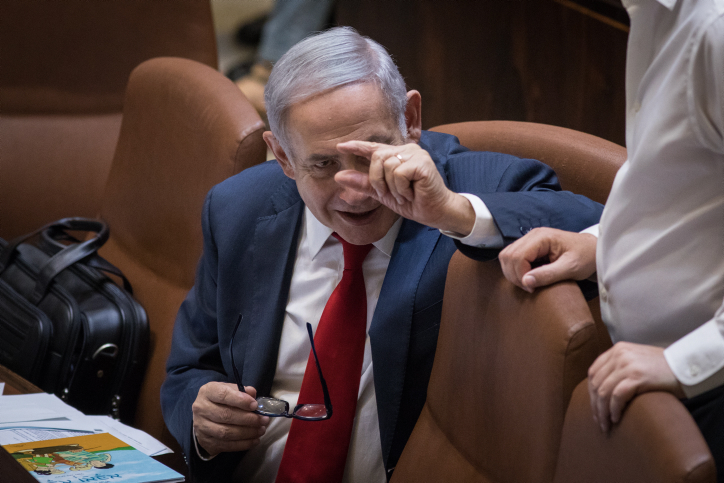I do not need the Jewish Nation-State Law to remind me that I am not equal to my Jewish friends. And yet, I was born here, I grew up here, this is my homeland. I have no intention of going anywhere.
By Yasmeen Abu Fraiha

Write it down, I am an Arab woman
Born to this land
I am Palestinian
My parents are Palestinian
And my ancestors are Palestinian
My mother and her family were expelled from their home in 1967, when she was only eight, so that the army could use it as a military outpost. My grandmother was beaten by IDF soldiers when she returned one night to ask for blankets to protect her seven children, who were forced to sleep outside, from the cold. My father grew up in dire poverty, with no access to water or electricity, while new, affluent Jewish towns were sprouting up around him on his ancestors’ land. This history is part of me, and no law will change that.
I do not need the Jewish Nation-State Law to remind me that I am not equal to my Jewish friends. I am reminded of this on every drive to Ben Gurion Airport, during which I undergo rigorous security checks because of my last name. I am reminded of it by every landlord who hears my father’s accent and suddenly decides that the apartment is no longer relevant. Every time my brother tells me that he was asked to show his ID at the entrance to his university campus, even though his friends are never asked to do the same. I am reminded every time I am asked “You’re Arab? Wow, you don’t look Arab! No worries, we are all human,” and every time I receive stares when I speak in Arabic.
I do not need the Jewish Nation-State Law to remind me that Arabic is not the official language of the State of Israel. I am reminded every time I see poor translations published by government ministries and authorities. Every time I enter a bookstore and cannot find books in Arabic. I am reminded of it every time I discover that yet another important medical document was not translated into Arabic, or when there are no Arabic subtitles on television.

Racism and inequality is not a political issue, it is personal. When my mother cannot be buried in the place she lived most of her life, it is personal. When Israelis protest and threaten an Arab who bought a home in an all-Jewish city, forcing him to give up, it is personal. When a poet is convicted in court for writing poetry about oppression and discrimination, it is personal. When the authorities try to whitewash the killing of an educator who was shot dead during his own eviction, it is personal. When wine is deemed sullied because it was touched by the wrong person, it is personal. When one is told they are not good enough to be a parent, it is personal. Racism means using the identity someone was born with against her. It means telling him that he is inferior because of how he was born. It is as personal as it gets.
The right to national self-determination is a personal and collective right. I do not ask anyone for permission to choose my own identity, or which groups I choose to belong to. Write it down — I was born here, I grew up here, this is my country and my homeland. I have no intention of going anywhere, and my children, too, will be raised here. I will speak whichever language I choose, and I will live wherever I want. If this gets me thrown in jail, so be it. I will not go quietly.

The Jewish Nation-State Law, and all of the government’s recent activities these past few weeks, are worse for Jews than for Arabs. The legitimacy it grants Israel’s discriminatory policies places Israel alongside other dark regimes. No longer can it claim to be “the only democracy in the Middle East.” Israel has placed itself squarely on the axis of evil and has chosen the wrong side of history.
And yet, I have always been optimistic. My parents, despite what they have gone through, always believed in a shared life. History proves that the good guys win out, and that the oppressed do not stay oppressed forever. This is true of the apartheid regime in South Africa, of slavery in the United States, of the French Revolution, and even the Jewish people after the Second World War. I am encouraged from the knowledge that lies and injustices are not sustainable for long. Perhaps this really is the time to go to the polls in droves, as our prime minister said. Maybe it is time to build an “alliance of the oppressed” with other groups that face discrimination. It is time to wake up and shake this evil sickness from the ground up.
So that those up top will know — beware of our hunger, beware of our rage.
Dr. Yasmeen Abu Fraiha is a doctor specializing in internal medicine and a social activist. This article was first published in Hebrew on Local Call. Read it here.
